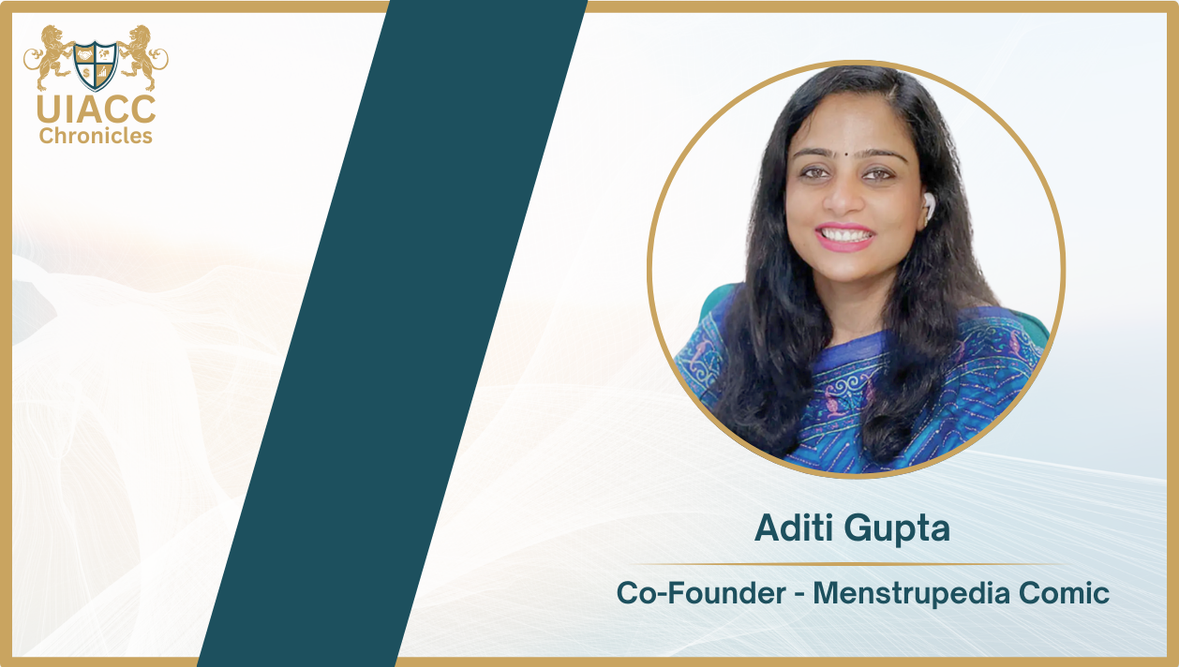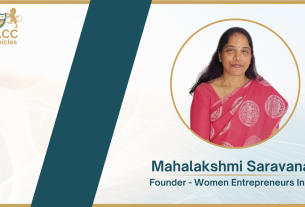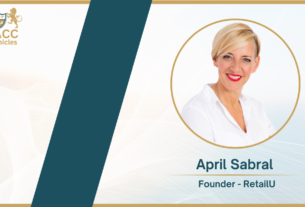Q: Aditi, thank you for joining us. Can you share what inspired you to start Menstrupedia?
Aditi Gupta: Thank you for having me! Growing up in India, I experienced firsthand how menstruation was surrounded by taboos and misinformation. Like many girls, I was made to feel ashamed and restricted during my periods. Even though I was a science student, I didn’t fully understand menstruation until much later. When I saw that millions of girls in India faced similar challenges, I realized the need for accurate, easy-to-understand, and stigma-free education on this topic. That’s how Menstrupedia Comic was born—to provide a fun, informative, and culturally sensitive way to educate young girls about periods.
Q: Menstruation is still considered a taboo subject in many parts of India. How did you overcome resistance while promoting menstrual education?
Aditi Gupta: It wasn’t easy! When my husband, Tuhin Paul, and I started discussing Menstrupedia, many people dismissed it, saying, “Why talk about such things?” Schools and publishers were hesitant to adopt our comic because they feared backlash from conservative communities.
To overcome this, we focused on creating engaging, non-threatening content—our comic was designed in a friendly, illustrated format, making it easy for girls, parents, and teachers to use. Instead of forcing conversations, we worked with schools, NGOs, and parents to introduce the comic in a way that felt safe and educational. Slowly, attitudes started changing, and today, Menstrupedia is used in over 25 countries and translated into multiple languages!
Q: What challenges did you face while building Menstrupedia?
Aditi Gupta: There were many!
Social Stigma: Convincing people that menstruation is a normal biological process, not a “dirty secret.”
Funding and Support: In the early days, getting financial support was tough because investors were hesitant about a social-impact-driven business.
Distribution in Rural Areas: We wanted to reach schools and girls in remote areas, so we had to partner with NGOs and educators to ensure access.
But the biggest challenge was changing mindsets. Today, it’s heartwarming to see parents, teachers, and even boys engaging in menstrual education, which was unthinkable a decade ago.
Q: Menstrupedia has been widely successful. What do you think contributed to its impact?
Aditi Gupta: A few key factors:
Storytelling Approach: Instead of using a textbook format, we created a comic with relatable characters so that young girls could see themselves in the story.
Cultural Sensitivity: We ensured the content was non-controversial and approachable, making it easier for teachers and parents to introduce the topic.
Collaborations: We partnered with schools, NGOs, and even brands like Whisper to scale our reach.
Community Engagement: Menstrupedia is not just a product—it’s a movement. The support from individuals who believe in menstrual education has been incredible!
Q: As a woman entrepreneur, did you face any gender-based challenges?
Aditi Gupta: Yes. In the beginning, people often dismissed my work because they didn’t see menstruation as an “important” issue. Some even suggested I work on something more “mainstream.” Additionally, as a woman, discussing periods openly meant facing criticism and societal judgment.
But I’ve learned that when you persist with a strong mission, people eventually start listening. The fact that parents and even boys are now open to discussing periods proves that change is possible.
Q: What’s next for Menstrupedia?
Aditi Gupta: We want to expand our reach to more schools and rural communities while creating new educational resources. We’re also working on interactive digital content to make learning even more accessible. Our mission is to ensure every girl, no matter where she is, has access to accurate menstrual education without shame or fear.
Q: Finally, what advice would you give to young changemakers who want to create social impact?
Aditi Gupta:
- Start with a real problem. Find something that deeply matters to you, and work towards solving it.
- Don’t be afraid of resistance. If you’re tackling a social taboo, expect pushback—but keep going.
- Educate and involve people. Change happens faster when you include parents, teachers, and communities in the conversation.
- Believe in your work. If you know your mission is important, don’t let society’s opinions stop you.





